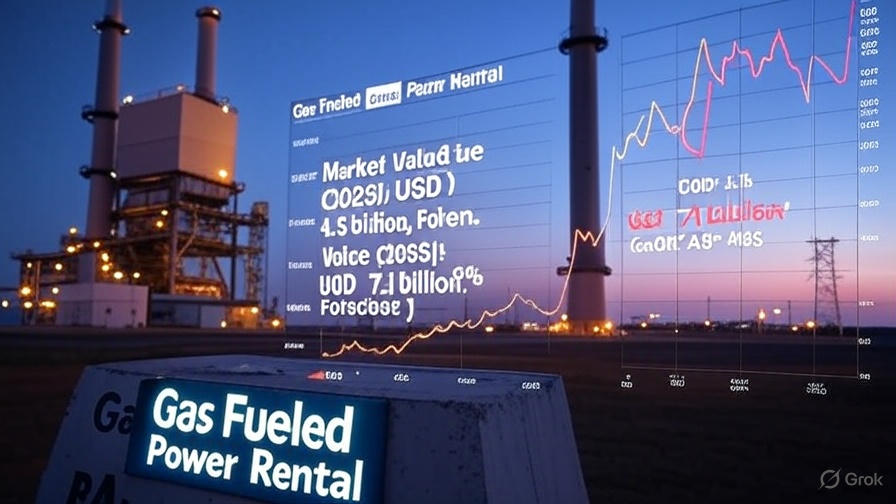The global gas fueled power rental market is poised for significant growth, projected to increase from USD 4.5 billion in 2025 to USD 7.1 billion by 2035, reflecting a compound annual growth rate (CAGR) of 4.6%. This upward trajectory is largely driven by the escalating demand for cleaner energy solutions, as industries and governments alike seek to reduce their carbon footprints. The shift towards gas as a transitional fuel is critical in the context of global energy policies aimed at sustainability and environmental responsibility. As traditional fossil fuels face increasing scrutiny, gas-powered rental solutions present a viable alternative that balances energy needs with ecological considerations, making this market particularly relevant in today’s energy landscape. The implications of this growth are profound, as it signals a broader transition within the energy sector towards more sustainable practices. Key insights suggest that the adoption of gas fueled power rental systems can facilitate a smoother transition to renewable energy sources, providing flexibility and reliability during the shift. Furthermore, as infrastructure investments ramp up to support this market, stakeholders must consider the technological advancements and regulatory frameworks that will shape its evolution. The focus on cleaner energy not only enhances operational efficiency but also aligns with global initiatives aimed at combating climate change, positioning gas fueled power rentals as a strategic component in the future energy mix.
Tags:
OFF-GRID








